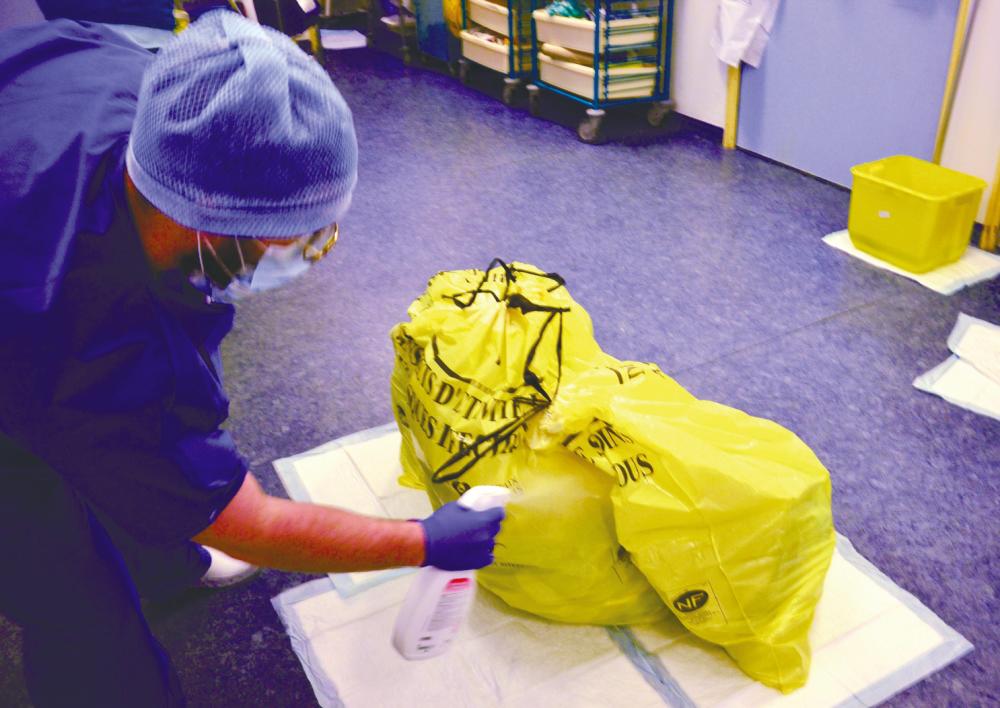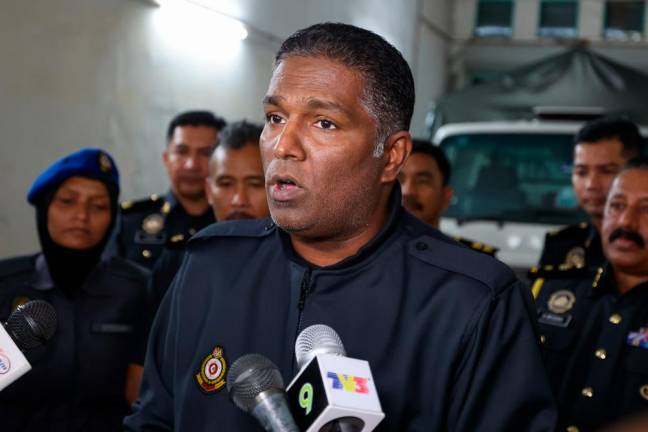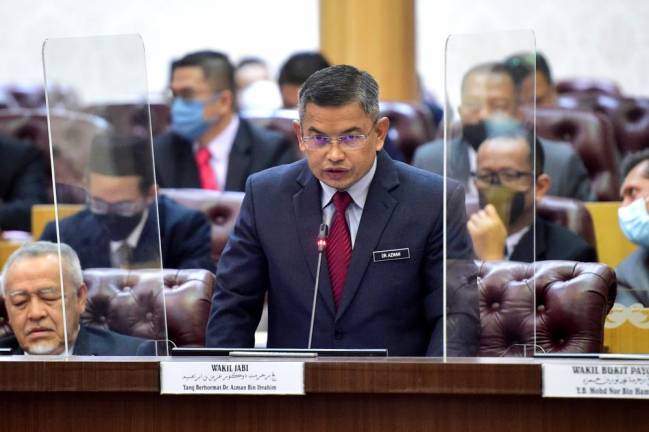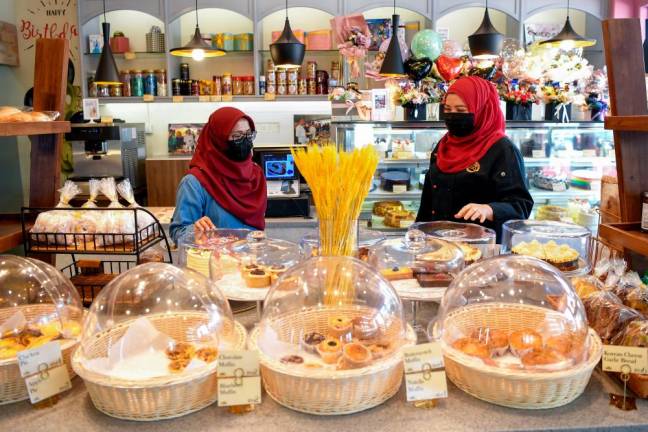THERE are three key measures we can take to fight the Covid-19 outbreak:
» Social distancing
This is the key to breaking the transmission (spread) of the coronavirus outbreak. Make it our “mantra” – social distancing, social distancing, social distancing. We need to shut down many activities.
Meeting in small groups is just as hazardous as large groups. Stop all meetings, workshops, conferences, religious groups, schools, universities, weddings, dinners, celebrations, night clubs, etc.
Small group meetings like prayer meeting or small social gatherings and late night outings are also at risk of spreading the virus. Stop travelling and stay at home. Limit your excursions outside the home.
We will need to be creative on how to use our time at home as well as keep fit. Those in education must put in place online education and tele-learning. Employers need to institute work from home and teleworking. Even Ministry of Health (MOH) press briefings must institute a one meter distancing for reporters and staff. Social distancing measures will be difficult but can be achieved if we all work together and support each other.
» Hand washing and not touching surfaces
Keeping our hands clean is critical. Always carry an alcohol-based hand sanitiser. Avoid kissing, shaking hands, hugging or touching others unless that is absolutely necessary. Don’t touch any surface unless absolutely necessary.
Avoid crowds and crowded areas. If someone in public is coughing or sneezing, keep your distance and ask them to put on a mask. Consider carrying spare masks and offer them to individuals who cough or sneeze.
» Good information and avoiding disinformation
There are many false ideas and suggestions circulating and it is important we verify them before sharing. It is best to check with accredited sources or read reliable sites. Do not spread fake news on treatments, deaths or outbreak sites. The epidemic is fluid and everyone needs to keep up-to-date.
Some suggestions for specific circumstances and situations.
Those who become unwell
If you have a fever, running nose or cough you need to assume that you may have the coronavirus. Note that testing will not be possible for most people as tests are limited and we should reserve them for contact tracing, stopping clusters, seriously unwell individuals and ill older persons.
It should be the responsible thing to tell your employer, school or university that you are unwell and refrain from going back until you’re well. What you should do is to self-isolate yourself. If possible, use a bedroom with an attached bathroom and stay away from everyone, including your family.
Avoid sharing towels and any items for personal hygiene (eg toothbrushes). There is some evidence for Covid-19 to spread by stool (faeces). Flushing of the toilet should be done with the lid down and toilet bowl covers should be cleaned periodically.
You will need to keep yourself meaningfully occupied by reading, using the internet, etc. If you are well enough, you can do light exercises in the room or garden. How long you should remain in self-isolation? At least seven days but possibly 14 days.
Supporting older family members
Our major concern is saving the lives of our older loved ones and those with chronic heart, lung and other conditions (hypertension, diabetes, chronic lung damage, etc). We should consider if they should be semi-isolated from the community. The minimum you should do is to make sure that they have two to three months of their essential medication available.
Also have some excess supplies of food for them in case the outbreak gets worse. Limit visitors and excursions. Do not share food within the family. It is best to have a spoon for every dish. If older persons become ill you should contact MOH to check about testing.
Dealing with eating out
If possible cook at home or buy back. If you buy back food use your own utensils to pack the food, avoid the shop’s plastic containers.
If eating out think about all the surfaces and people you are going to be in contact with and how to limit this.
There is good data that this virus can survive up to 48-72 hours on many surfaces. Try and open the door with your foot. If that is not possible swab or spray the door handle with alcohol before touching it and once inside disinfect your hands with an alcohol-based hand sanitiser.
Remember to be respectful of others and don’t leave your dirty tissues behind, especially those used to clean your mouth and nose, as it may infect others if you are infected but are unaware.
Avoid using a straw for drinks unless absolutely necessary, perhaps for a person with a disability.
All food-handlers and servers should routinely use a transparent kitchen mouth shield (mouth or spit guard). They are not expensive and can be reused after cleaning.
Eateries should clean table tops in between every customer using an alcohol based spray.
It is best to pay using electronic means to avoid getting back change. If you have to pay in cash give the extract amount or forego some change.
When shopping at the supermarket
We will have to make intermittent visits to the supermarket to stock up on essentials. Be mindful of the trolley bar. Best to clean it with an alcohol spray. Bring your own bag to avoid using supermarket plastic bags except for wet items/meat. Try to keep a distance from other people as much as possible, especially at the check-out counter. Be careful with touching lift buttons, travelling in lifts and car park buttons.
School holidays and closures
School holidays are here and have a potential to spread the virus widely. It is best that we do not travel. If you travel avoid travelling in an enclosed environment with others, like an aeroplane, taxi, bus or train.
We expect that our nation may have to take the extraordinary step of shutting down all schools, colleges and universities for a period to stop the virus spreading. The best would be to allow parents to work from home and students to have online classes. In addition, parents should consider activities that allow for social distancing but can still be rewarding, example a walk in the neighbourhood, park or jungle, rather than allow all of us to be glued to electronic devices. If school closure happens it may be a wonderful opportunity for families to re-connect, especially for parents to listen to their children.
Visits to the hospital or clinic
We should avoid going to the hospital or clinic unless necessary. Those with planned visits for chronic illness should try and arrange for limited waiting times. This would mean that we can arrive 10-15 minutes before the visit, see the doctor and go off quickly. This can be arranged if we improve the efficiency of our health services and offer mobile appointment services.
We must limit the number of people waiting to see a doctor in the clinic or hospital specialist waiting areas. If you are unwell, tell the counter staff immediately when you arrive, so that they can give you a mask and keep you away from others.
Now is the time to work together and share our resources. If you have extra masks and hand sanitisers, consider sharing with those who do not have any. If you have some financial resources, consider sharing it with the poor or those who will be hard hit by the loss of daily paid jobs.
This outbreak will show us who we are as Malaysians and teach us many things about ourselves.
Our joint social responsibility is what will make the difference in this epidemic.
Datuk Dr Amar-Singh HSS is a senior consultant paediatrician. Comments: letters@thesundaily.com













